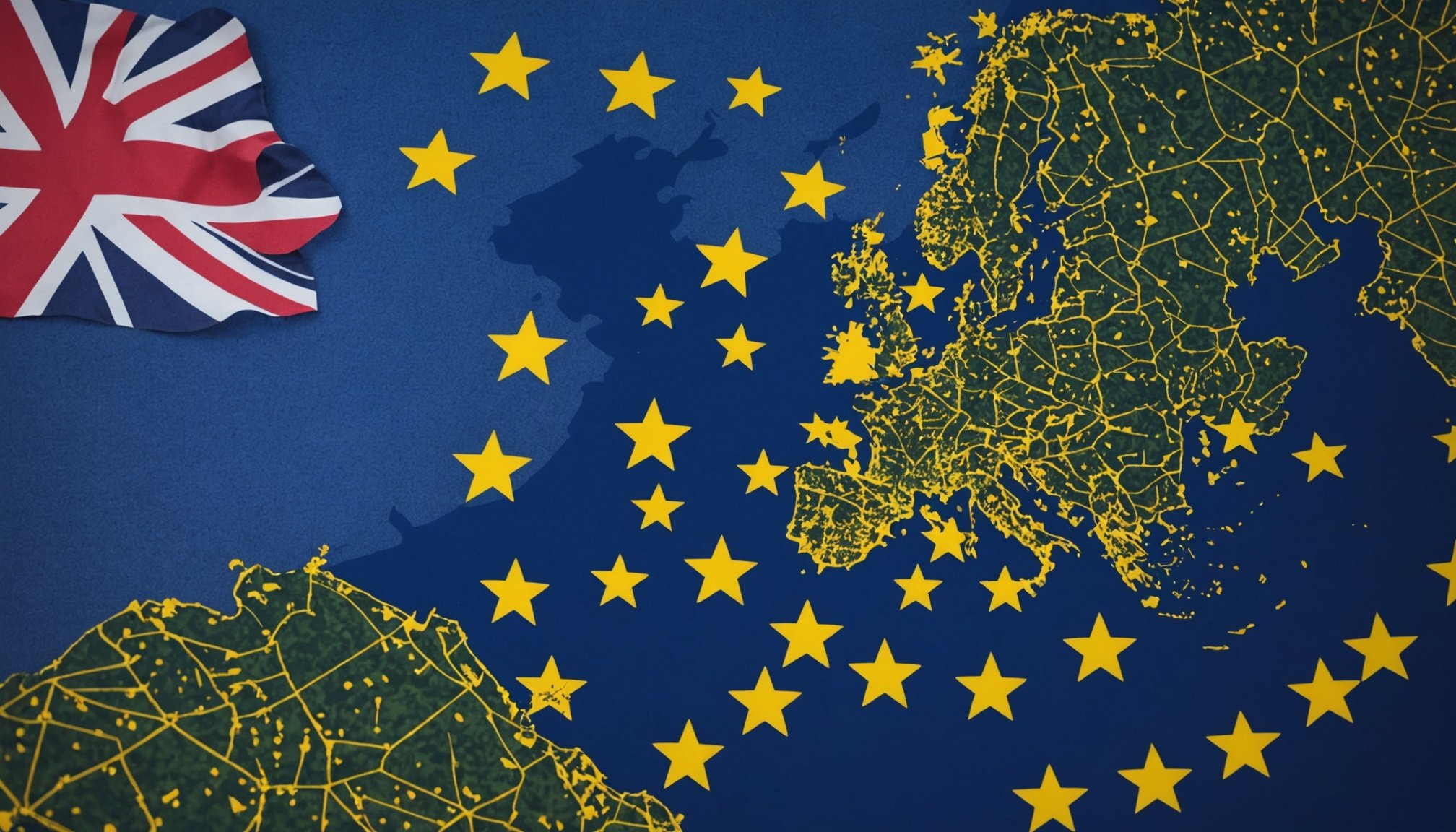Overview of EU Market Access for UK Businesses
Following Brexit, UK businesses face a transformed regulatory landscape when it comes to gaining EU market access. Understanding these changes is pivotal for companies aiming to sustain or grow their operations within the EU. The new regulatory framework requires UK entities to meticulously plan and strategize to align with EU standards.
Post-Brexit, the EU market access for UK businesses has shifted significantly. Previously seamless entry due to the unified regulations has now been replaced with a requirement to navigate individual regulatory landscapes. This poses challenges, particularly in sectors heavily regulated by EU directives.
Also to read : Essential Legal Guidance for UK Businesses Navigating Renewable Energy Initiatives
The importance of EU market access cannot be overstated for UK economic growth. The EU remains one of the largest trading partners for the UK, and uninterrupted access is crucial for stability and competitiveness. Understanding the key differences in market access regulations, such as new customs barriers and certification requirements, is necessary for successful entry and operation.
In essence, UK businesses must adapt their strategies to maintain compliance with the EU’s intricate regulatory system. Legal compliance and understanding the new post-Brexit rules are vital components that must be addressed to ensure a successful market presence in the EU.
Topic to read : Protecting innovations: an in-depth legal handbook for uk companies on intellectual property rights
Legal Framework Governing EU Market Access
Navigating the EU regulations for market entry requires an astute understanding of the differing compliance needs post-Brexit. UK businesses must adeptly align with these requirements to establish a presence within the EU market effectively.
Overview of EU Regulations
Key regulatory bodies, such as the European Commission, oversee and enforce directives that influence UK business operations. For instance, the GDPR affects data handling policies, while REACH is vital for chemical-related industries. It’s crucial for businesses to identify which directives are pertinent to their sector to ensure a smooth market entry process.
Compliance Requirements
Achieving legal compliance involves preparing essential documents, such as the Economic Operator Registration and Identification (EORI) number, necessary for customs processing. Additionally, understanding the nuances of customs and trade regulations becomes imperative. It ensures uninterrupted entry of goods and services.
Legal Considerations for Operating in the EU
Contractual obligations with EU partners demand careful negotiation to align with regional laws. Import/export restrictions, including potential tariffs, need strategic foresight. Addressing these legal implications early in the planning phases helps mitigate delays and fosters robust partnerships. Therefore, for UK businesses, adopting robust compliance strategies remains indispensable for successful market integration.
Documentation and Compliance Strategies
Post-Brexit, documentation plays a pivotal role in UK businesses securing EU market access. Compliance strategies are essential for navigating the EU’s regulatory landscape and avoiding potential pitfalls. A cornerstone of this strategy involves acquiring necessary documentation such as the EORI number, CE markings, and product certificates relevant to the industry.
Maintaining compliance is not just about adhering to current regulations. It also requires implementing ongoing operational guidelines. This includes regular updates to documentation in response to evolving EU standards. Businesses should establish a robust internal system that oversees compliance management, ensuring all departments align with these standards.
However, the path to compliance is fraught with challenges. Common pitfalls often emerge from misinterpretation of regulations or delayed submission of vital documents. To sidestep these, companies should adopt best practices such as conducting regular compliance audits and seeking expert guidance. These practices can help in identifying discrepancies early, allowing for timely corrective actions.
In essence, strategic documentation and adherence to compliance strategies empower UK businesses to effectively manage their EU operations. This approach fosters sustainable growth while mitigating risks associated with the intricate European market environment.
Market Entry Strategies Post-Brexit
Navigating market entry in the post-Brexit era demands strategic planning for UK businesses aiming for business expansion in the EU. Identifying market opportunities is fundamental. Engage in thorough market research to understand key sectors poised for growth and specific market demands. This intelligence aids in making informed decisions about potential entry points and investment areas.
The establishment of partnerships within the EU is crucial. Focus on building robust relationships with EU stakeholders through effective communication and cooperation. Trade associations and chambers of commerce play a pivotal role in this process by providing networks and resources to facilitate connections.
When entering the EU market, adapting business models is imperative. Customise products and services to align with EU consumer preferences and regulatory requirements. Considerations such as localisation of content, adherence to standards, and cultural nuances significantly enhance the market appeal.
Pricing strategies also require careful recalibration to remain competitive while accommodating potential tariffs and tax implications. It’s essential to understand the competitive landscape and structure pricing that reflects value suitable to the EU market. Emphasising flexibility and responsiveness to market changes ensures sustainable growth.
Case Studies and Best Practices
Analysing case studies provides valuable insights into how UK businesses have successfully navigated EU market access post-Brexit. These examples highlight the importance of adaptability and strategic foresight in meeting regulatory compliance demands.
One notable success story is a UK-based tech firm that promptly adjusted to the revised regulatory landscape by investing in expert knowledge. They established a dedicated compliance team to ensure adherence to varying EU directives, demonstrating that a proactive approach enhances compliance and operational efficiency.
These best practices underscore the necessity of strategic planning, as shown by a UK apparel company that effectively broadened its EU presence. By customising products to fit local preferences and implementing a flexible pricing strategy, they navigated market dynamics smoothly, setting a standard for other businesses.
Importantly, lessons from those facing compliance challenges reveal that early identification of regulatory needs minimizes delays. A logistics company learned this the hard way, overcoming initial setbacks by restructuring their documentation process. They now prioritise real-time regulatory monitoring and engagement with legal experts, ensuring resilience against potential compliance issues.
UK businesses are encouraged to assimilate these successful strategies to boost their EU market integration efforts.
Navigating Potential Pitfalls
After Brexit, UK businesses face several potential risks and challenges when accessing the EU market. Regulatory uncertainties can significantly impact business operations, necessitating careful planning and strategy adaptation.
Identifying Common Risks in EU Market Access
Understanding regulatory uncertainties is paramount. Changes in EU directives can introduce complex requirements, complicating processes for UK businesses. Moreover, geopolitical factors, like shifting trade policies, can influence market access, affecting both import/export activities and business relationships. To address these, businesses must continuously monitor regulatory updates and geopolitical developments.
Strategies to Mitigate Risks
Mitigation strategies are essential. Developing agile compliance frameworks allows businesses to quickly adapt to regulation changes. Engaging legal experts can offer critical insights and guidance to navigate complex EU regulations, ensuring compliance and operational continuity. Proactive measures reduce the possibility of disruptions and ensure robust business operations within the EU.
Preparing for Future Changes
Maintaining awareness of evolving EU regulations is crucial. Staying informed enables businesses to anticipate and respond to regulatory challenges effectively. Proactivity in compliance and market strategies fosters preparedness for unforeseen changes, securing a stable presence in the EU market. Thus, vigilant monitoring of upcoming regulations is vital for continued growth and competitiveness.







